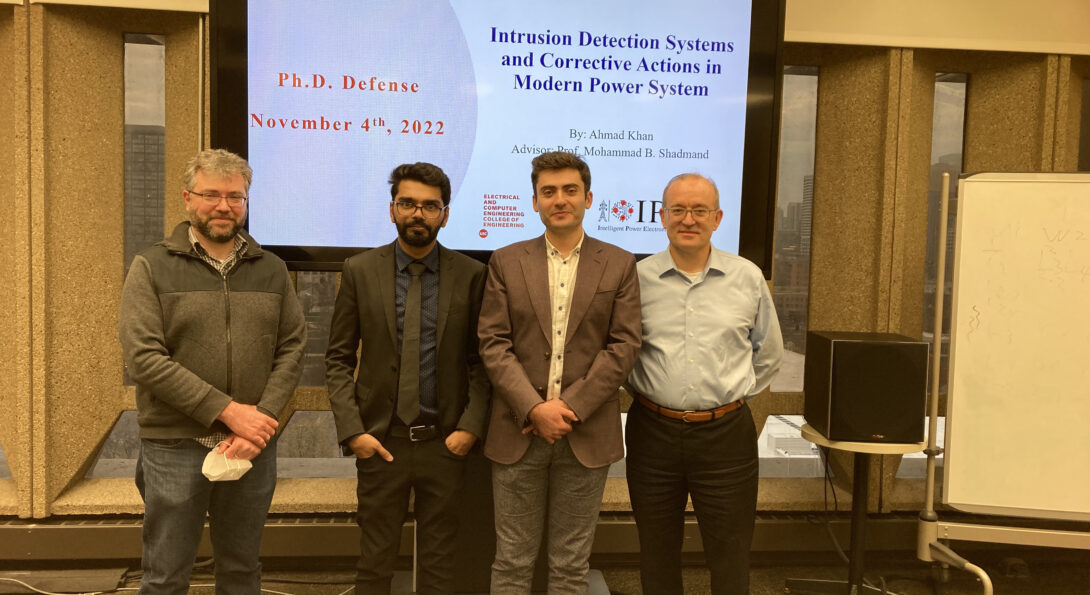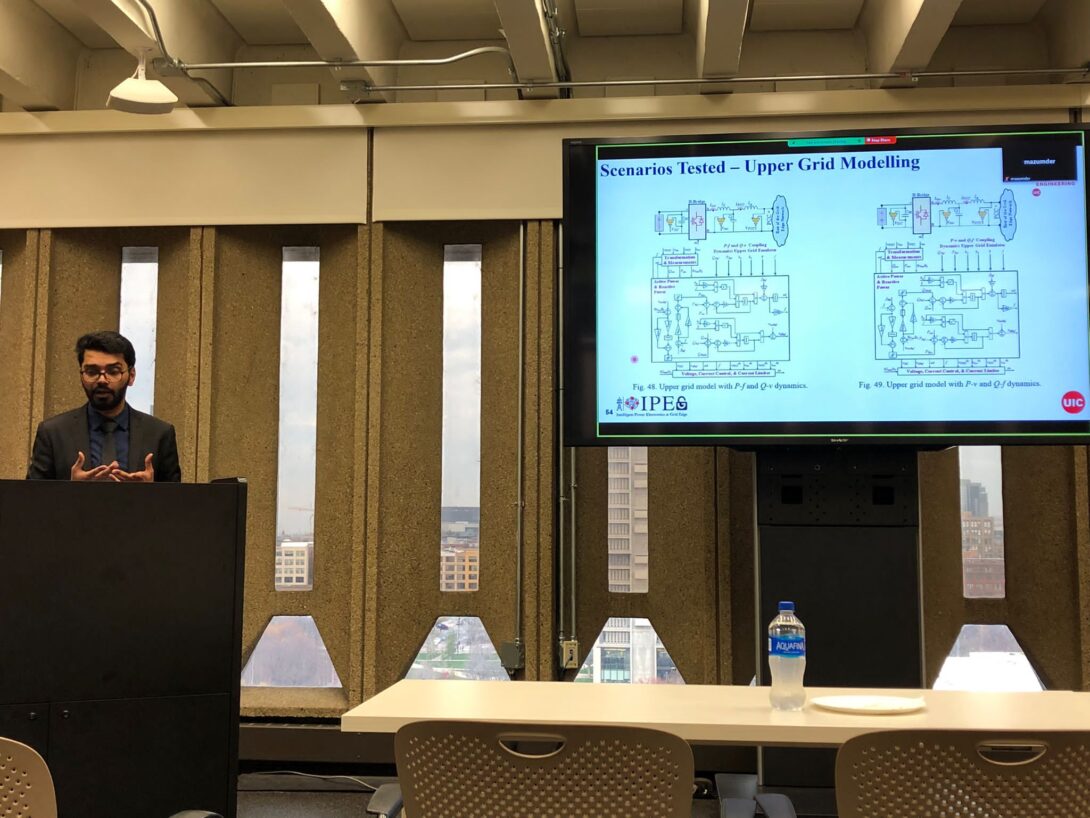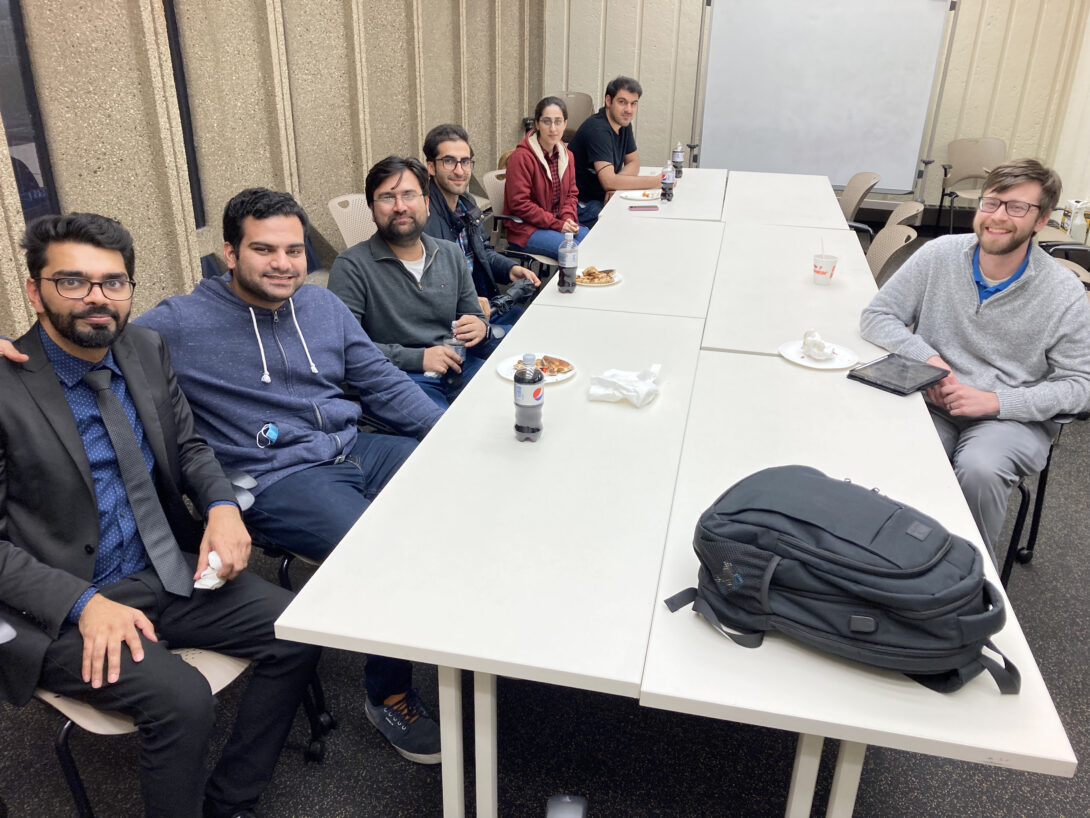Dr. Ahmad Khan successfully defended his Ph.D. Dissertation

Introduction
Dr. Ahmad Khan (former IPEG PhD candidate) successfully defended his PhD dissertation on November 4th, 2022. He joined IPEG lab in Fall 2018. IPEG lab wishes him the best of luck in his career and next chapter of his life. Congratulations, Dr. Khan!
Title of his Ph.D. Dissertation: Intrusion Detection Systems and Corrective Actions in Modern Power System
Thesis Summary:
The futuristic energy paradigm implicates high penetration of renewable based generation through embracing distributed energy generators (DEGs). At the grid edge, grid-feeding inverters are the prevailing type of DEGs. In this mode of operation, the DEGs are following the inertial response of the network and their capabilities are confined in injecting/absorbing current into/from their local point of common coupling bus. Henceforth, real-time system level coordination is crucial to assure the optimal utilization of DEGs that are potentially installed behind the meters. Thereby, concepts such as the power electronics-dominated grid (PEDG) with multi-layer control layout are used as an effective solution enabling DEGs efficient utilization. However, this futuristic power grid is anticipated to be vulnerable to malicious cyber-attacks due to the dispersed generation nature. In this dissertation, an intrusion detection system (IDS) is developed to prevent malicious set-points assigned to the primary control layer by an intruder breaching into the secondary control layer. This IDS is based on an analytical operation region identification framework. Precisely, each bus with DEGs is described with a non-linear multi-dimensional manifold where the network DEGs set-points are appearing as the domain variables constructing the feasible voltage co-domain. The IDS is equipped at the primary control layer of each DEG that enables authentication of the set-point with the developed operation regions to decide if an intrusion occurred or not. Then, after the intrusion is detected the IDS perform a corrective action to regain normal operation. This corrective action is based on consensus dynamics control that assures the normal operation of the PEDG in post-attack operation. Additionally, in this dissertation, a single-loop direct decoupled active and reactive power control without phase-locked-loop (PLL) requirement for grid-following inverters with adaptation to frequency deviations is developed. This developed control is proven to be asymptotically exponentially stable with Lyapunov theory. This proposed control is used as the main primary control for the network DEGs to avoid instabilities correlated with PLL synchronization usage.
Dr. Ahmad Khan presenting

Dr. Ahmad Khan presenting his thesis on ‘Intrusion Detection Systems and Corrective Actions in Modern Power System’
Dr. Khan with his lab colleagues

Dr. Ahmad Khan with his colleagues from IPEG lab.